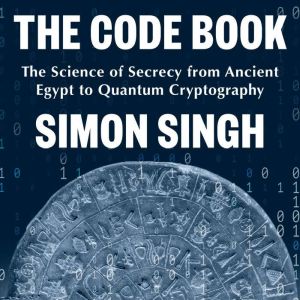

The Code Book
The Science of Secrecy from Ancient Egypt to Quantum Cryptography
Author: Simon Singh
Narrator: Patty Nieman
Unabridged: 10 hr 27 min
Format: Digital Audiobook Download
Publisher: Random House Audio
Published: 10/10/2023
Categories: Nonfiction, Technology & Engineering, History, Language Arts, Linguistics, World History
Synopsis
Throughout the text are clear technical and mathematical explanations, and portraits of the remarkable personalities who wrote and broke the world's most difficult codes. Accessible, compelling, and remarkably far-reaching, this book will forever alter your view of history and what drives it. It will also make you wonder how private that e-mail you just sent really is.
